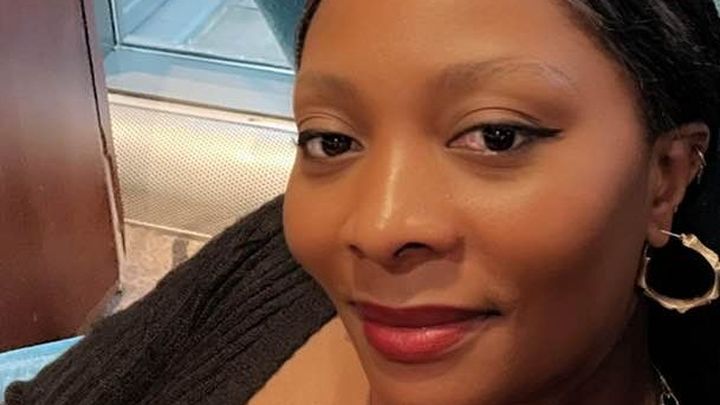
Help Feza Wathaut support Autistic children in the DR Congo.
Donation protected
My friend, Feza Wathaut, is a support worker in a residential care home in Belfast. She was born in Goma, a city in the eastern part of the Democratic Republic of Congo (DRC), but has lived in Belfast since 2009. Feza has a special interest and passion for Autism, and those who suffer from the condition. However, services for autistic people are non-existent in the DRC, particularly in the Eastern provinces where a civil war is raging.
Feza wishes to travel to the DRC in April 2025 in order to work with a newly-formed charity, Vivre Autism. Her longer-term goal is to establish a special centre for autistic children and adults in Goma, where the need is greatest. But the purpose of this first trip is to raise awareness of the condition amongst the refugees and displaced people of the East. Feza hopes to stay in the DRC for four weeks, and will require around £5,000 to cover living expenses and hire of venues for the various information events. As much of the population is desperately poor, food and refreshments will be provided for participants.
The DRC obtained its independence from Belgium in 1960. Since then, there has been a series of civil wars fuelled by various secessionist movements. These conflicts have led to over six million dead and 7.2 million internally displaced people. The wars have traumatised the population, and impacted every sector of society, including health and education.
Autism is a neurological condition that influences how people communicate, interact, learn, and behave. It affects around 2 per cent of the population in most countries. Based on this prevalence, in the DRC (population 110 million) up to two million people may be affected by the condition. However, unlike western Europe, very little is known about Autism in the Congo. In the rural areas, the civil war has destroyed health care provision, and there is widespread ignorance concerning autism. According to Feza:
“There is a great stigma attached to the condition, and people with autism are often shunned by the public or locked away by their families. Some people believe it has been caused by witchcraft. It is seen by many as bringing shame on the family, and the woman is often blamed. In the rural areas, it is not unusual for the husband to abandon the family, leaving his wife and children behind to face poverty and destitution.
“The situation is critical in Goma (city in Eastern Congo). The civil war is still raging, and thousands of refugees have fled from the rural areas to seek sanctuary in the city, and escape the terrible violence. Barely able to feed themselves and their families, they have no energy or resources to help their autistic children. A specialist centre for diagnosis and treatment is desperately needed there.”
Feza came to Northern Ireland in 2009. She began working in a local theatre. Then COVID-19 arrived. Everything shut down.
“At that time (December 2020), the only work I could find was in a care home. And that’s when my interest in Autism really began. Many of the residents have neuro-divergent conditions, such as Autism or Asperger’s Syndrome.”
“As my knowledge of the condition deepened, I couldn’t help but contrast how people with autism are treated in the DRC compared with Northern Ireland. Here, there is a whole series of laws to protect them from abuse. In my home country, there is nothing. I’ve seen with my own eyes that in Northern Ireland many people who are “different” are treated with sensitivity and compassion. This is not the case in DRC.”
“There is no diagnosis, no treatment, no awareness of the condition, and no laws to protect them. Take my own brother in Goma. He has an eight-year-old boy who is non-verbal. I see all the traits of autism in his behaviour, but there is no help available. Sometimes, the child gets so frustrated at not being understood, that he self-harms by banging his head off the wall. And this is happening all over the Congo. There are probably around two million children and adults who have never been examined, diagnosed, or treated for the condition.”
With millions of people dead and displaced in my country, the treatment of autism is very low on the Government’s list of priorities.”
Feza is going to Congo in April to work with a medical expert (Dr. Berthe Sikuyanza Tabena) and her charity, Vivre Autism. She will spend the first two weeks in the capital hosting educational talks and information sessions in various venues on autism, before proceeding with Dr Tabena to Goma, Eastern DRC, for a further two weeks. In Goma, they intend to organise meetings in rural churches, schools and medical schools. This will provide an opportunity to raise awareness of the condition amongst the local people and refugees, particularly women, who shoulder the main caregiving responsibility.
My friend, Feza, has a deep desire to make a difference in her home country, the DRC. She hopes this visit to Congo will be the first of many. It represents the beginning of a new phase in her life. In addition to setting up a specialist Centre, her Mission is to advocate for change, and force the government to take the issue of autism seriously.
Please help Feza take this first step. Get her on the plane to Kinshasa!
 Co-organizers (2)
Co-organizers (2)
Raymond Russell
Organizer
Northern Ireland
Annie Wathaut
Beneficiary
Annie Feza Wathaut
Co-organizer